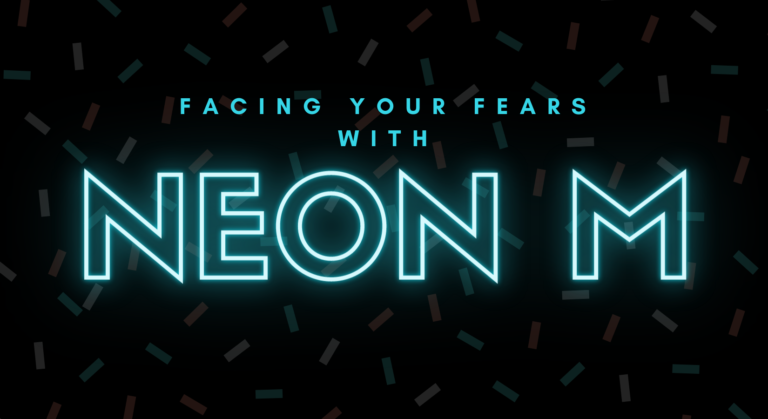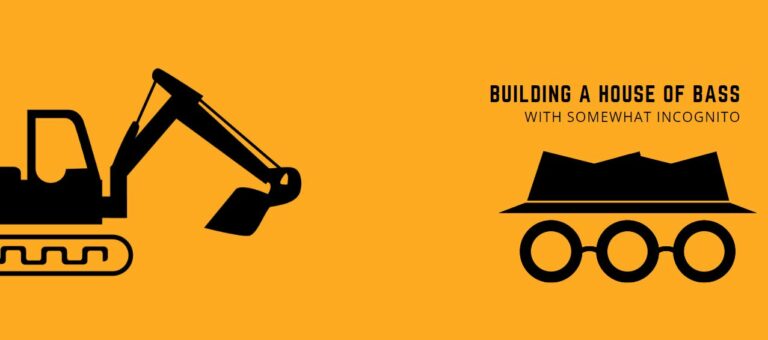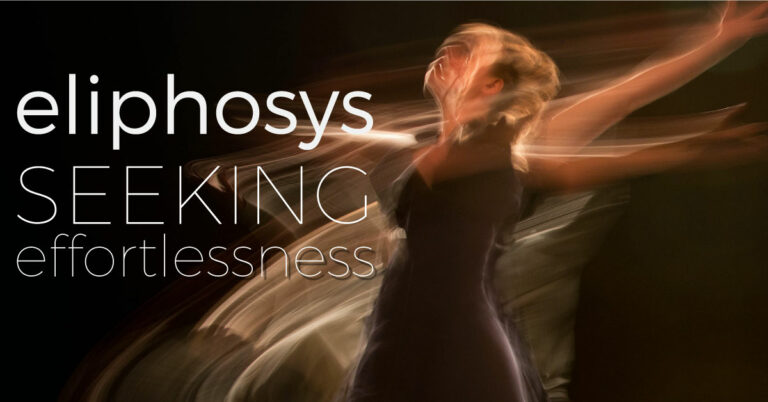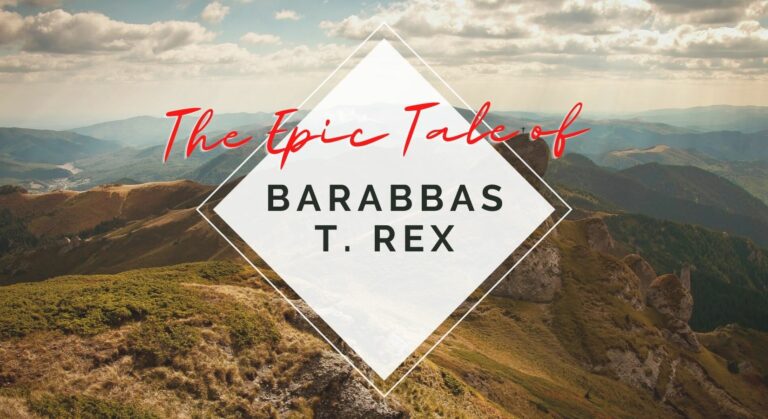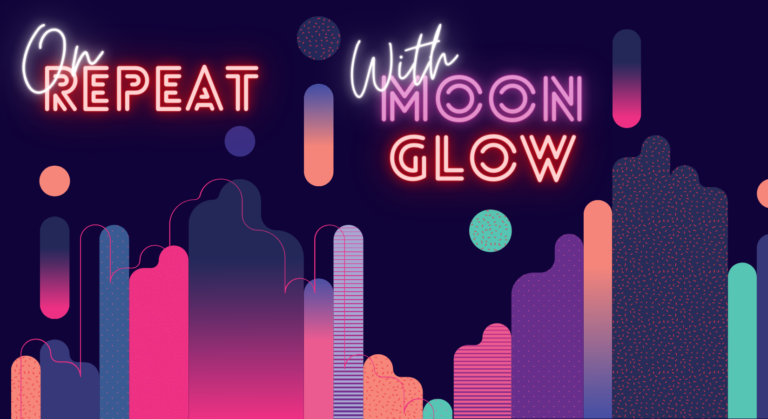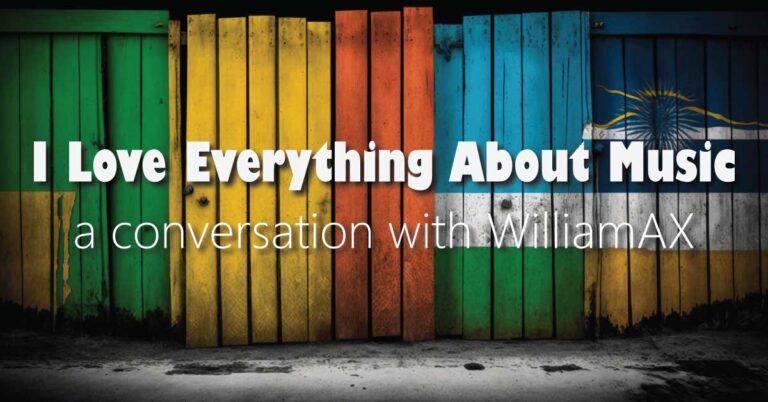Reve Vague makes music and videos. He’s a creative force in two separate projects: Good Morning, Daydreamer, and My Home is the Sea. I had a chance to talk to him a couple weeks ago about his creative process, and his relationship to music, musicians, and listeners. I often think about how we as artists, and our work, supports the goals of corporations. In a lot of cases, we’re providing the interesting ‘content’ that enables them to connect with new customers, or keep existing ones. Reve Vague and I talked about audience and community. I was excited to have the opportunity to learn more about him and get deeper into his music. I hope you’ll enjoy our conversation – edited and condensed for readability – below.
Tell me about your journey into music.
I started making music when I was 8 years old. I studied music at Temple University, and went on to get my masters in education. I teach music to elementary school kids now.
Wow, elementary kids! It must be tricky to keep them interested!
It is hard, especially as they get older. I love the challenge though – I’m always looking for new technology, new instruments, new musical ideas to explore with them. I teach musical instruments, but before we even get to that sort of thing, we work on basic things like keeping time, and singing together.
How does your teaching affect your own creative process?
I have a really strong sense of melody from knowing about a million kids songs from all sorts of eras. I get to play piano and find harmonies and melodies in those songs, and apply ideas from other things I know into those songs as I’m working on arrangements for the kids.
I’m forced to keep things simple for the kids, and this has really helped me strengthen my own composing and arranging fundamentals. I often have to make and adjust arrangements on the fly while I’m working with the kids, and that keeps me on my toes. Sometimes while I’m prepping something for a class, I’ll get an idea and have to stop and record it on my Phone, and that idea will turn into a song later.
I do a lot with the kids – there’s a lot of variety – which keeps it really fun and interesting for me. I’ve teaching for 10 years now – I’m a lifer, and I really love it.
Where do you teach?
I’m in a public school in Philadelphia.
How are arts and music in the public schools there?
Our music curriculum is strong – I get a lot of support for what I do. Our school systems are rebuilding music and arts programs that were de-emphasized for a while. I’m hoping things will swing back to a place where music education is valued and stays that way.
We’re working hard to stay up with new technology and expose kids to new ideas. I think when the COVID pandemic is over, parents and other people will appreciate the value that teachers have in their families.
How are you using technology and how are the kids responding?
Before COVID, I was working with the kids in Garage Band, and they were having fun recording and making music with a tool that made it pretty intuitive for them. They were getting to play with the synthesizers in GB, and make loops and use them to build musical ideas. They were really getting into it.
I don’t see any reason that middle schoolers couldn’t make great music if the tools they were using were accessible enough.
I think you’re right.
Advances in digital recording and production have just led to an explosion of music, and a lot of it is great, and that makes it much harder to break through.
That’s true. It’s also true that a lot of material is not really ready to be widely heard, and the bloggers and playlisters and whatever are overwhelmed by the amount of material they’re getting.
It’s hard to compete with everyone who is vying for attention. And although I agree that there’s a lot of music being produced that’s maybe not that good, there’s a huge amount of music that really is good
I think about how artists can use their art to create social currency. Every corporation is trying to get people to pay attention to their content – to see their ads, buy their services, or whatever. I think it’s more important to have a community of listeners than to put a lot of effort into trying to break through that noise.
How do you feel about the relationships you have with your listeners?
I’m coming out of a period where I was a little burned out on making music. I was feeling overwhelmed by the constant barrage of content on the internet. It’s hard to spend years of your life making music, and then to be unable to get your friends to click on it on Facebook.
Something that helped me get an understanding of what the future of music might look like was Brian McTear and Weathervane Music – they have this idea that that growing and sustaining a community of listeners is the important thing, and might be the core of a different kind of career strategy.
I keep going back to the idea that he talks about – that I need to focus on building a community of listeners. That’s the answer. I really recommend checking out his workshops – I can’t say enough about the work he’s doing.
Talking about burnout – I walked away from music for 20 years because it felt unrewarding. I was convinced for a long time that the trick to being financially successful as a musician was dedication and hard work, but figured out that’s not always true.
I tried to make a career from making and playing music, and it just really stressed me out. I’m glad I made the decision to find a way to make my day job be about music. Some people might think that I made a compromise, but it really works for me.
I see a lot of people finding different ways to make music part of their professional life in creative ways: Youtubing, or streaming, or giving lessons, or whatever.
I really like to work, and to make art. I like to wake up early, drink up coffee, and go to my job, then come home and create. That really works well for me.
Also, I know a lot of musicians that look successful to outsiders, but I know they’re not supporting themselves through their music – they still need to work their day jobs.
Maybe this myth of ‘making it’ by making music is just a way to sell people guitars.
There’s a big part of the music industry that has musicians as customers – we buy equipment and software, and bring people into venues, and onto websites.
I’ve had the experience several times, when we’re splitting pay with all the bands and musicians at the end of a show, of just realizing that gas and parking cost us each more than we’re taking away from a night of hard work. And with COVID, a lot of things have fallen apart. I don’t know whether venues will come back, or whether they’ll be able to survive after the pandemic is past.
I guess I’m a bit more optimistic about venues and other social gathering institutions. I think there’s a lot of pent up desire for people to get outside and to see and touch other people.
I hope you’re right, and that people won’t just take it for granted once they can go out again. But there’s another problem: going to live shows is a young person’s game. In my early twenties, me and my friends had a lot more time to hang out, and flexibility to go out late and see shows. Now we’re all a bit older – we have jobs and families and kids and responsibilities, and live performances just aren’t an important part of any of our lives any more.
Tell me about your creative process – what goes into your music making?
These days, I play a lot of piano and guitar. When I’m writing a song, I’ll usually sketch out a couple chords that I think are interesting and different. When I fall in love with something, I’ll improvise a melody over it, and maybe sketch out a song structure. When the idea is far enough along, it will go one of two ways…
I have two primary creative outlets – two projects: My Home is The Sea is a project that I have with my wife Natalie, and is more electronic sounding. Good Morning Daydreamer is my rock band project. Usually I’ll share an idea with Natalie first, and if she’s not into it, I’ll try to develop it as a Good Morning, Daydreamer idea.
Are you still collaborating during COVID with your band – over the internet?
Well, aside from COVID, and the fact that we don’t live that close together these days, we all have other life things going on. My guitar player just had a baby, so I’m trying to let him take care of family things. My drummer just got a job as a middle school science teacher, and I want to give him the space to find his rhythm in that job. I think we’re all looking forward to post-COVID times, when we can play in person together.
What’s the thing you’ve made that you’re most excited about?
Clarity, off Rinse and Repeat, is my favorite. The whole album is some of the best work I’ve ever done, but Clarity is my absolute favorite. I think the melody is really strong and beautiful.
The song is about those special moments in your life when something just really clicks – when it all comes together, and when you want to hold on to that feeling. It’s that feeling when you’ve made something you’re really proud of – when you’re on your way to work, and you’re listening it, and you’re like, “Wow! I did this!,” and you just want to bottle that experience. The song is about that experience, and I think it captures it really well.
A pianist friend of mine from college wrote a beautiful string arrangment for it, and I had some of my music teacher friends play strings on it. I don’t know – I’m just really proud of it.
What about My Home is the Sea – is that about wanting to have a creative relationship with your wife, or what?
Yeah, it’s that – Natalie is a singer. The project comes from our shared love of electronic music, and arpeggiators, and experimenting with synths. It’s a way for us to explore electronic sounds, and to collaborate. Sometimes when I’m making music, I tend to get settled into patterns. Working with her, I often find myself exploring new things and going new directions. I’m excited to get out of the rock band and jazz ensemble way of making music.
The name of the project comes from a song by Smog (Bathysphere), which is about life on the sea. Natalie comes from outside Atlantic City, and that nautical vibe was something that really inspired us.
What are you working on right now?
There’s some new My Home is The Sea stuff that I’m working on that I’m really excited about, but it’s not quite done yet. I’m really too close to the material right now to properly finish it. I need to walk away sometimes, and come back. When I do that, I’m usually excited about it again when I come back.
Is it right that you value both the relationships between you and your listeners, and also with other artists?
Yes, that’s right. I think it’s really important to have relationships with other artists, and I’m really excited to be part of what I think is a really thriving local scene. It energizes me from the drudgery of everyday life. That connection between artists is real, and inspiring. We should aim to listen to music around us, and support musicians that we find interesting.
IMF is really good at fostering that kind of relationships between musicians – where people really support each other – through feedback, and in other ways. It’s been really hard to do this sort of thing in person during the pandemic, and I was really glad to find a community in the IMF discord. I think the discord platform is really well suited for music and collaboration.
I like to talk about music theory, and gear, and to give and listen to feedback, and other people like to do other things, and it just works well. I’m really impressed with IMF moderators and their ability to keep the community productive. It’s full of really enthusiastic and talented people.
Are you on other music Discords?
I’ve checked out other music discords. I’m still on several, but when I pop in, I just see a lot of people spamming, and I usually just want to leave.
I’ve been wanting to improve my video skills, and really start making music videos, and I’ve been searching for a discord community that might help me learn more, and I’ve been having a hard time finding one.
I feel really strongly that everyone should be making video content to support their music. It’s important to have that visual component to get and keep people’s attention, and to make your music memorable. Everyone should buy a camera and learn this stuff. We’re visual, and so are our listeners.
I totally agree that my experience of watching music with a good video is much more engaging than listening to music alone, and I want to give listeners that experience as well.
The thing that’s brought me back to a place of creative energy has been experimenting with visuals and video. And people who are finding my videos are much more engaged – I’ve gotten great feedback from people about my music and my videos from people who just never cared about my work before. It’s fun!
My mother-in-law gave me a video masterclass from Werner Herzog as a present, and it was great! I don’t know how much I’ll be able to apply it, but it definitely got me excited to keep working on my video making.
My favorite video I’ve made so far is In Decline. I’m learning not to make some obvious post processing mistakes, like overdoing color correction, and this video is the best I’ve done so far.
I released an EP of music last month, and I didn’t put any energy into promoting it, because I wanted to go back to making videos. Sending 400 emails a night to Pitchfork and Anthony Fantano and whoever to promote my music is soul crushing for me. Making videos gives me energy, and so I want to do it more.
When people hear and give me feedback on IMF, it’s more than I ever get from doing all this promotion stuff. I feel like I should focus on building a small, engaged, audience that cares about what I do, and at some point maybe I won’t have to put so much energy into getting people to pay attention to my music.
What do you think the next couple years of your musical journey look like?
I really want to make videos. I want to nurture a community of people – artists who I work with, or want to, and listeners. I want to play small local shows, play some small tours. I’m trying to launch a small cassette label. I want to play with more people, and get more people to hear them. I want to play in person with people and in front of people after COVID. It’s a really important part of my musical experience, and I really miss it.
I really like to hear and spend time with my friends’ music. That’s at the center of my creative process.

